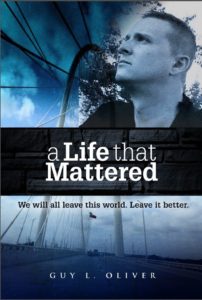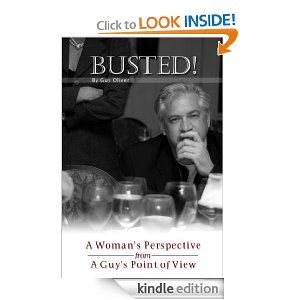The measure of our redemption is found in how we, ourselves, take responsibility for the actions that are ours—but we don’t always stop to consider the actual meaning of the hackneyed comment
“I take full responsibility.”
Words cannot be measured unless they are accompanied by actions. By admitting your injury to others, you merely open the gateway to healing.
This was the original intention of our prison system. Federal prisons are called penitentiaries because they were meant to be a place of penance. The notion of reflecting on our wrongdoing with an eye to repentance. To acknowledge our injury of others and to turn away from our crimes and to commit ourselves to an upstanding and decent life. Only in this stance can we redeem ourselves.
And it is this thing, this active and deliberate self-inventory and repentant approach to life, that our justice system was intended to encourage. Sadly, it does nothing of the sort.
“…Every day I am given an array of brutal reminders as to just how cold and permanent this world is. Sometimes, though, I think this may be good for me. There is structure and routine.
Everything is done at the same time and, with the exception of the ever present potential for violence, you know exactly how your day will unfold. It is the very definition of monotony. I imagine that it’s much like military boot camp but without the benefit of a job when you’re done. …”
This is the reality of the American prison today, which may be no worse—or perhaps even immeasurably better than other prisons throughout the world. What is different, though, are the numbers of prisoners and the nature of their crimes.
In 2015 the United States led the world in prison census, with 2.2 million incarcerated people. This reality compared to 850,000 in Russia and 1.5 million in China, a nation led by a brutal regime and more than three times our current population. Further, in American prisons, individuals typically receive a 1,200 calorie per day diet and endure the threat of being assaulted at every turn. Finally, the rate of recidivism is roughly 70%, making prison a proverbial revolving door for most prisoners.
Yet only 7% to 10% of these offenders are convicted of violent crimes. More than 50% are drug offenders, and the law and order champions among us—I being the most ardent at one time—applaud this statistic.
“Drugs ruin lives.” We say.
And in so saying we choose to overlook the reality that it is the incarceration where lives are truly broken. We overlook the fact that each of these prisoners is an individual human with a former life measured in great worth by someone else.
A mother. A father. A sister. A brother.
Some of these individuals do not reflect upon their actions, callously viewing them with no remorse whatsoever. Most, however, reflect on their actions with great regret, and their suffering is compounded by their absence from our lives. They are missing from those whom they love and from those who love them. More importantly, they are missing from our community.
Perhaps when they walked among us they were a menace, deserving of removal from our midst. Many of us forget, though, that when they are no longer present, the opportunity to work, to pay taxes, to vote, and to help drive our economic engine—all are lost.
Most importantly, however, they cease to be part of us.
They are locked away, unseen, and unnoticed by most of us as we go about our business with no thought of them at all. Even the homeless we see as we wait in traffic and try to ignore the filthy, pathetic presentation of the sign that reads
“Anything helps.”
I am no exception. I often want not to see and therefore do not judge the proclivity to dismiss these hapless souls, but having harbored in my heart an incarcerated child, I recall that they are indeed souls. I remind myself that each of them mattered to someone at some point and in many cases they still do.
I have friends, conservative and liberal alike, who believe that prison is a place of punishment. That rehabilitation is an afterthought. That we should not concern ourselves with how prisoners are treated so much as they are made to remember that
“Prison should be a bad place—a place you don’t want to be.”
And we go on about our business.
“But you were always a good man of business, Jacob,” faltered Scrooge, who now began to apply this to himself.
“Business!” cried the Ghost, wringing its hands again. “Mankind was my business. The common welfare was my business; charity, mercy, forbearance, and benevolence, were, all, my business. The dealings of my trade were but a drop of water in the comprehensive ocean of my business!”
– Excerpt A Christmas Carol
Charles Dickens
Was my son deserving of prison? Yes. He was a bad actor. Was he deserving of the treatment he received and the conditions to which he was subjected?
Here I must pause.
My son’s treatment in prison provided an incentive after he was released to do his level best not to return. He was motivated with the strongest personal sense not to return to the hell-hole from which he eventually ascended. And with that motivation, he no-doubt derived in part the drive to make a change.
But ask yourself—and pause with me as you do—does that justify inhumane treatment of a non-violent human, simply because he has run afoul of the law? Is rehabilitation not the order of such a circumstance? Do we not owe these human beings—these people—the dignity of hard work coupled with vocational training, complemented by enough food to abate physical hunger and a physically safe place to sleep?
At the end of the pause I can only offer my opinion, humble, though it is:
Yes.
While these offenders owe us their penance, we owe them safe and decent accommodations, adequate food, hard work, and training so they might escape the Sirens of addiction. So they might live among us as brothers and sisters. So they might go about their business—the business of mankind. The business of leaving the world better than we found it.
“I’ll be in this holding facility for at least two more months—so please write. I haven’t seen the sun or smelled fresh air in the previous two months. Anything from the outside world is a blessing.
I love you, dad, and I’m sorry. I’m so very sorry.
Your son,
Tim”
I’m not here to tell you what to think. I’m here to appeal to your humanity and to remind you that no one is beyond redemption.
…


